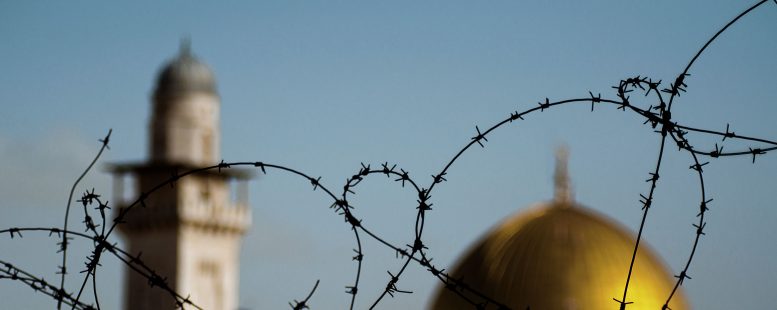Our Opinion: 2023
War in Middle East

Israel needs to carefully judge its response to the terrorist outrage, whilst the West must end its relaxed approach to the plight of the Palestinians.
For now, Israel’s priority is to deal with Hamas militants, eliminate rocket launch sites and obtain the release of an estimated 150 hostages. But its biggest worry will be preventing an uprising in the occupied West Bank. So far, the White House is backing Israel to the hilt and describes the attack as “unprovoked.”
Palestine consists of Gaza and the West Bank. Hamas and Fatah are the two main Palestinian political parties. While Hamas, which governs Gaza, does not recognise Israel’s statehood and is committed to its destruction, Fatah does, and wants a two- state solution.
At present, the Palestinian Authority, led by Mahmoud Abbas, chairman of Fatah, the largest faction of the Palestinian Liberation Organisation, officially manages just 18% of the Israeli-occupied West Bank, Many leading human-rights groups have concluded in recent years that the conditions faced by West Bank Palestinians are tantamount to apartheid.
The atrocities committed by Hamas cannot be justified, but the slaughter has exposed a basic truth: people want to be free of occupation and of colonial foreign settlements on their land. Palestinians have been unable to liberate their land using political means. Negotiations by Abbas have failed as, did the efforts of US secretary of state John Kerry to negotiate a two-state solution in 2013-2014. For the last ten years, there has been no discussions around any negotiating table.
A ceasefire and talks will have to happen, sooner or later, especially if Biden wants to prevent a wider war drawing in Hezbollah in Lebanon and Iranian-backed, anti-Israel militias in Syria and Iraq. If the Western democracies want to keep Russia and China from further extending regional influence, they must end the hands-off approach.
Declaring unquestioning solidarity with Israel is easy – and problematic. Leaders need to act and make a reality of what remains the only available, plausible, lasting solution – an independent, sovereign Palestinian state peacefully coexisting with Israel.
The death toll in the Israel-Hamas war has continued to climb since the Palestinian militant group launched its highly coordinated terror attack on Israel, from the Gaza strip, on 7th October. The brutal attack killed more than 1,200 people, including women and children, with at least a further 2,700 wounded, leading Israeli prime minister Benjamin Netanyahu to declare, “We are at war”. US president Joe Biden described Hamas as “pure, unadulterated evil” and assured Israel of its support, both diplomatic and military.
The Israeli government has cut off power and water to Gaza and ordered a siege to starve Hamas of resources. Hamas, which governs Gaza and is on the list of the EU’s terrorist groups, should not be confused with the Palestinian Authority (PA) or ordinary Palestinians. A siege may be seen as an act of collective punishment.
The Gaza strip, a strip of land about 25 miles long and just a few miles wide, is now essentially an open-air prison housing roughly two million people. Hemmed in by Israeli and Egyptian blockades and the Mediterranean, there is nowhere to flee. It is clear that Hamas did not act alone. Cash and expertise were supplied by Iran and Hezbollah, a Lebanese militant group also backed by Iran. Tehran has also supplied weapons via smuggling routes, including a network of tunnels.
It is astounding that, despite the combined efforts of domestic intelligence, Mossad, its external spy agency and all the assets of the Israel Defence Forces, Hamas was able to cross the heavily fortified border and fire thousands of rockets into Israel. The other question is why now? Israel’s chaotic domestic politics made the timing opportune, but it was an impending deal between Israel and Saudi Arabia that made it urgent. Saudi Arabia was on the brink of joining the Abraham Accords, which have normalised relations between Israel and several Arab states, including the UAE, and led to booming trade links.
This is the context for the attack. The objective was to make Israel lash out and ignite a war that draws in Hezbollah; a war that sees so many Palestinians killed that the Israelis lose the moral high ground and halts the collaboration between Israel and Arab states. In the longer term, however, if Israel can judge the right response, the forces driving geopolitics in the Middle East are likely to prove more powerful than this terrible violence.
To be at the forefront economically, the priority for many Arabs is peace. And a fair deal for Palestine.
18th October 2023
